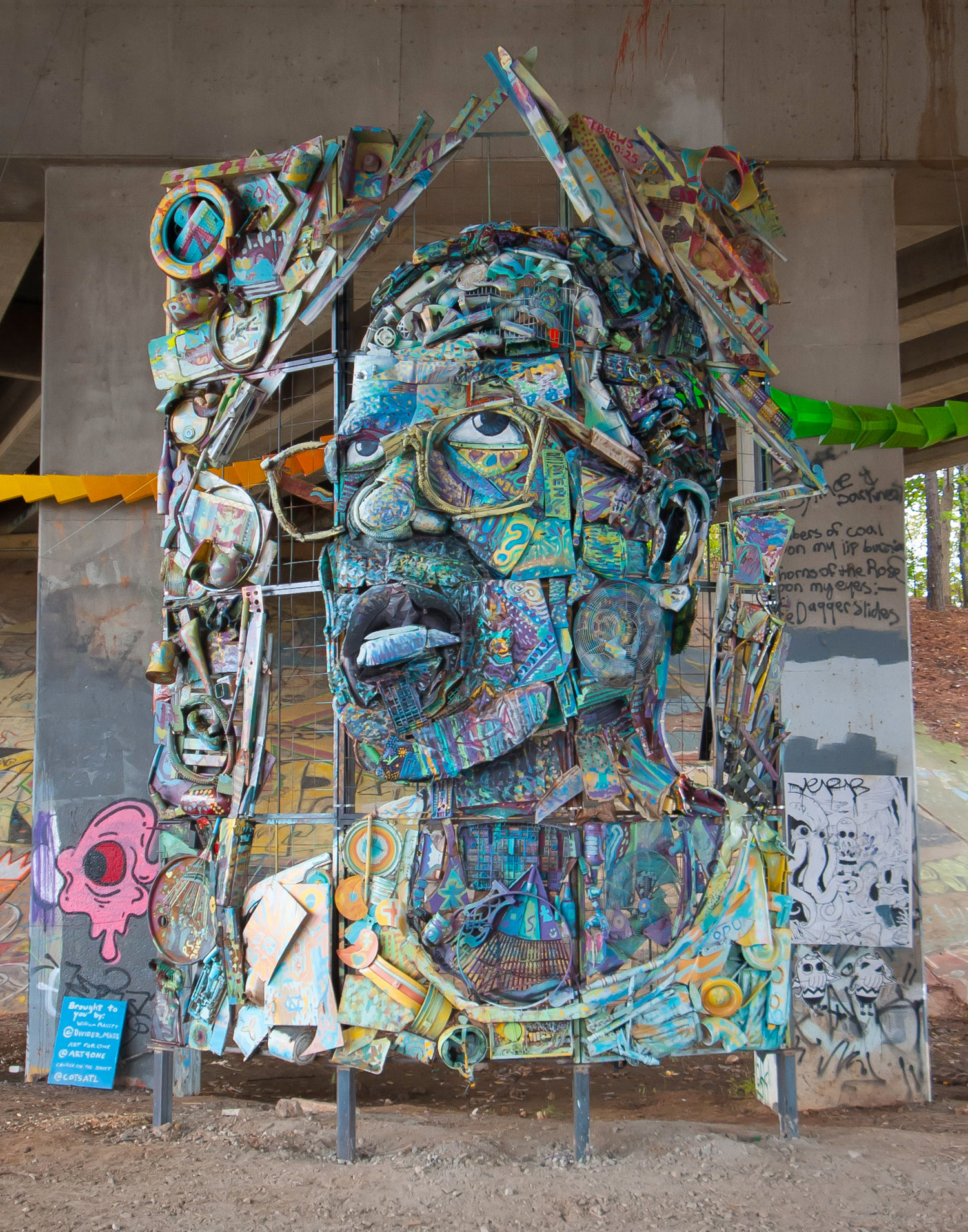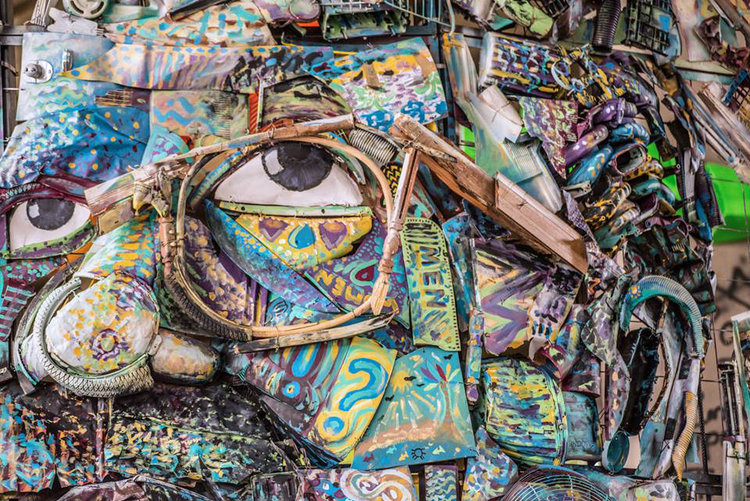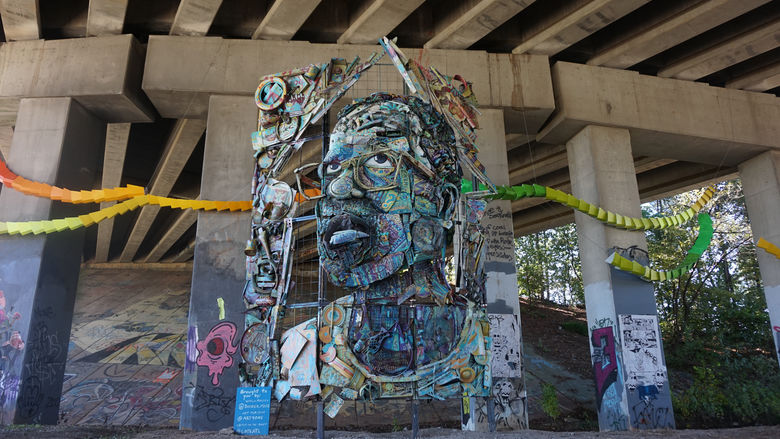April 9: Becoming New Creations
♫ Music:
Tuesday, April 9
Becoming New Creations
Scripture: 2 Corinthians 5:17-21
Therefore, if anyone is in Christ, he is a new creation. The old has passed away; behold, the new has come. All this is from God, who through Christ reconciled us to himself and gave us the ministry of reconciliation; that is, in Christ God was reconciling the world to himself, not counting their trespasses against them, and entrusting to us the message of reconciliation. Therefore, we are ambassadors for Christ, God making his appeal through us. We implore you on behalf of Christ, be reconciled to God. For our sake he made him to be sin who knew no sin, so that in him we might become the righteousness of God.
Poetry:
The Wild Iris
by Louise Gluck
At the end of my suffering
there was a door.
Hear me out: that which you call death
I remember.
Overhead, noises, branches of the pine shifting.
Then nothing. The weak sun
flickered over the dry surface.
It is terrible to survive
as consciousness
buried in the dark earth.
Then it was over: that which you fear, being
a soul and unable
to speak, ending abruptly, the stiff earth
bending a little. And what I took to be
birds darting in low shrubs.
You who do not remember
passage from the other world
I tell you I could speak again: whatever
returns from oblivion returns
to find a voice:
from the center of my life came
a great fountain, deep blue
shadows on azure seawater.
BECOMING NEW CREATIONS
Look into Tony’s eyes. The figure created by artist William Massey and over 200 volunteers from junk left on the streets of Atlanta isn’t of an anonymous or imaginary person, it’s a portrait of Tony, a person homeless in Atlanta for over 5+ years, now restored into a community, a career, and his family. Look into Tony’s eyes and in doing so perhaps learn more about our own hopes and fears than of his.
Tony’s slightly upturned eyes may be asking, “Do I dare to trust?” Learning if we can trust others is perhaps the first lesson of our lives. Developmental psychologist Erik Erikson theorized that during their first year of life, infants learn to trust that their caregivers will meet their basic needs. If these needs are not consistently met, mistrust, suspicion, and anxiety may develop.
The crucial role of trust continues throughout human development. Addiction recovery literature identifies three rules of alcoholic families: Don’t Trust. Don’t Feel. Don’t Talk. Children raised in dysfunctional homes often adopt these three rules as survival techniques. However, the very rules that helped these children survive childhood, can hinder them as adults in forming the close, warm, interpersonal relationships that we were created to desire. Tony may be wondering if reconciliation with God and others may even be possible, given the role of trust in reconciliation.
Tony’s slightly upturned eyes may be asking, “Do I dare to hope?” He might be wondering if he dares to hope that he could be a new creation, if all of the junk of his life (broken relationships, broken dreams, broken body and their sequelae of emotional and physical distress) could be made into someone beautiful, someone loved.
He may also be wondering if he dares to hope that this life and its sorrows isn’t all that there is -- that the reality he’s experienced isn’t the only reality, that it may be part of a bigger reality. To put it into the words of poet Louise Gluck, Tony’s eyes may be asking if, indeed, there is a door at the end of his suffering.
And while these existential-type questions, “Can I trust?” “Can I hope?” “Can I be loved?” “Can I be reconciled to God and others?” may or may not have been behind Tony’s slightly upturned eyes, they are common to the human condition in a world marred by sin. Today’s Scripture reading gives us the courage to answer these questions affirmatively and to continue to break dysfunctional Don’t Trust, Don’t Feel, Don’t Talk rules. God demonstrated His trustworthiness and love for us through the life, death and resurrection of Jesus. He invites us to the joy and hope that being a new creation can bring. And as new creations, we can sing with trust and hope along with Peter Broderick and Nils Frahm, “And it’s alright.”
Look into Tony’s eyes. Perhaps they are filled with wonder that it’s not too good to be true that we are loved, have hope, and are new creations.
Prayer:
Father in heaven! You have loved us first, help us never to forget that you are love so that this sure conviction might triumph in our hearts over the seduction of the world, over the disquiet of the soul, over the anxiety for the future, over the fright of the past, over the distress of the moment. But grant also that this conviction might discipline our soul so that our heart might remain faithful and sincere in the love which we bear to all those whom you have commanded us to love as we love ourselves.
Amen
---Søren Kierkegaard (1813-1855)
Danish philosopher and theologian
Nancy Crawford
Associate Professor of Psychology
Director of Clinical Training
Rosemead School of Psychology
Biola University
For more information about the artwork, music, and poetry selected for this day, we have provided resources under the “About” tab located next to the “Devotional” tab.
About the Artwork:
The Art of Reconciliation Installation, 2015
William Massey
22 x 14 x 3.5 ft.
Metal, found objects, paint
Atlanta, Georgia
Artist William Massey created this artwork from old junk and refuse that volunteers gathered from the streets of Atlanta, Georgia. Throughout the summer of 2015, Massey coordinated The Art of Reconciliation project with a community of 200+ people. Each week, volunteers would help to clean up the streets of Atlanta by gathering discarded objects. Then Massey would arrange the objects onto metal frames and welcomed the community to participate by painting abstract colors and imagery over the assembled junk, thereby revitalizing the wreckage - one section at a time. The final portrait created from this refuse is of a man named Tony, a homeless man in Atlanta, who had been disregarded by his family and society, until he encountered a community of people willing to support him and foster reconciliation. Tony is now employed and living under the same roof as his family. This sculpture stands as a testament not only to the unity and generative culture, which creativity can promote, but even more, it is a monument to hope and redemption.
About the Artist:
William Massey is a freelance artist, sculptor, creative entrepreneur, and a co-leader of art programs within social organizations and health facilities throughout the city of Atlanta, Georgia. William received his BFA at Valdosta State University in 2012. Massey began his art career by glassblowing, teaching art to homeless youth, and creating public art installations. He has gradually evolved into a force of creative connection in Atlanta - utilizing the power of art to unify communities, uplift public spaces, pursue social and racial reconciliation, and creatively comforting those in hardship. https://www.williammasseyart.com/new-page
About the Music:
“And It's Alright - Nils Frahm Remix” from the album Erased Tapes Collection II
Lyrics:
Seven shooting stars in one night
The water and sand in our eyesight
The rocks in our hands preparing for flight
The lack of sleeping but it's alright
And it's all
And it's all
And it's all
And it's all
It's alright
It's alright
Seven shooting stars in one night
The water and sand in our eyesight
The rocks in our hands preparing for flight
The lack of sleeping but it's alright
And it's all
And it's all
And it's all
And it's alright
About the Composer and Lyricist:
Peter Broderick (b. 1987) is an American-born multi-instrumentalist and singer. In 2007 Broderick moved to Denmark where he began a long collaboration with the band Efterklang. During that time, he recorded several albums of solo material, ranging from the sparse classical compositions to homemade folk music. He was also commissioned to write music for several films and contemporary dance works. He lived in Berlin for several years where he met and collaborated with many like-minded artists including German pianist Nils Frahm. Now known as one of the Erased Tapes label’s veteran recording artists, Broderick has composed compositions for film, dance, and documentary films. In 2013, he relocated back to America and released the album Float that was remastered by Nils Frahm. Broderick continues to travel the world, performing solo concerts and collaborating with a vast array of various musicians and artists.
About the Performers:
Peter Broderick and Nils Frahm
Nils Frahm (b. 1982) is a German musician, composer, and record producer based in Berlin, Germany. He is known for combining classical and electronic music, and for his unconventional approach to the piano in which he mixes a grand piano, upright piano, Roland Juno-60, Rhodes piano, drum machines, and Moog Taurus. Frahm had an early introduction to music, as his father, Klaus Frahm, was a photographer who also designed covers for ECM Records. He grew up near Hamburg, where he learned the musical styles of the classical pianists as well as contemporary composers. As well as his solo work, Frahm has released collaborations with notable performers such as Anne Müller, Ólafur Arnalds, F. S. Blumm, and Woodkid. Together with Frederic Gmeiner and Sebastian Singwald, he records and performs as Nonkeen.
About the Poet:
Louise Elisabeth Glück (b. 1943) is an American poet. Glück is considered by many to be one of America’s most talented contemporary poets. The poet Robert Hass has called her “one of the purest and most accomplished lyrical poets now writing....her poetry is noted for its technical precision, sensitivity, and insight into loneliness, family relationships, divorce, and death.” Glück was appointed Poet Laureate Consultant in Poetry to the Library of Congress in 2003 after serving as a Special Bicentennial Consultant three years prior in 2000. She won the National Book Award for Poetry in 2014 for Faithful and Virtuous Night. In addition to the Pulitzer and Bollingen Prizes, she has received many awards and honors for her work, including the Lannan Literary Award for Poetry, the MIT Anniversary Medal, and fellowships from the Guggenheim Foundation, the Rockefeller Foundation, and the National Endowment for the Arts. Glück currently teaches at Yale University.
About the Devotional Writer:
Nancy Crawford
Associate Professor of Psychology
Director of Clinical Training
Rosemead School of Psychology
Biola University
Nancy Crawford, Psy.D., serves as the Director of Clinical Training at Rosemead, and as a former missionary, is involved whenever possible in providing care to missionaries and their families. She is an avid morning walker always on the lookout for a bird species she has not seen before.


